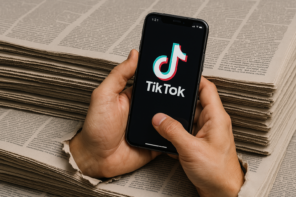
Friday November 22, 2024
Is the Global Town Square Dead? The Exodus from X to Bluesky
The Rise and Fall of Twitter’s Global Town Square
At its peak, Twitter was the vibrant hub of global discourse. It was a place where individuals from diverse backgrounds came together to share ideas, exchange jokes, discuss political opinions, and, yes, even dive into conspiracy theories. It felt like a democratising force, allowing direct connections between celebrities, politicians, and everyday users. I remember the thrill of interacting with Steve Van Zandt, Bruce Springsteen’s guitarist and a notable character on The Sopranos. It felt as though the barriers between people had dissolved, and everyone could participate in this global conversation. But now, as I reminisce about those moments, I can’t help but wonder: has the town square emptied out for good? Are we witnessing the end of an era as millions migrate from X, formerly Twitter, to Bluesky?
Twitter’s Revolutionary Beginning
I joined Twitter in 2009 while living in Pakistan, and it felt revolutionary. Twitter offered a unique way to connect and engage in real time with people from around the globe. I could join conversations I would never have been part of otherwise and witness firsthand accounts of historic events. It wasn’t always perfect—the toxicity and hate were there—but it was also a place that fostered real closeness and brought people together. Twitter was the platform where breaking news unfolded live, and a single tweet could make you part of an unfolding story. One of the most surreal moments I remember was following Sohaib Athar, an IT consultant in Abbottabad, who inadvertently live-tweeted the raid on Osama Bin Laden. This was a striking reminder of Twitter’s power as an unfiltered chronicler of history, providing real-time accounts from those closest to the action.
Twitter’s appeal wasn’t limited to major world events. It was also in the everyday, the mundane yet delightful interactions that made it feel like a genuine community. The memes, the jokes, the shared moments of joy and frustration—it was all part of the magic. But today, the platform that was once a bastion of spontaneity and connectivity has become a shell of its former self. Since Elon Musk’s acquisition and subsequent rebranding to X, the experience has shifted dramatically. It’s not just about the influx of crypto ads or Only Fans content cluttering feeds; the very spirit of the platform has changed. What was once a vibrant, albeit chaotic, town square has become a space dominated by bots, misinformation, and increasingly divisive and unregulated content.
Bluesky: A New Hope?
The appeal of Bluesky, as an alternative, has grown exponentially—what began as a trickle of users has turned into a significant exodus. Originally conceived as a project within Twitter by Jack Dorsey, Bluesky has since evolved into a standalone refuge for users disillusioned with Musk’s X. Bluesky presents an opportunity to reset, to capture the essence of early Twitter in a setting that feels more controlled and less toxic. Bluesky’s simplicity and its more moderated environment give users the ability to shape their experience. Features like choosing algorithms that curate what appears in their feeds and tools to detach from unwanted interactions have made Bluesky an attractive destination for those yearning for the old Twitter experience, free from its more recent toxicity.
Recent events have only accelerated Bluesky’s growth. In the wake of the U.S. presidential election, Bluesky’s user base exploded, with the platform gaining more than 1 million new users per day and reaching 20 million users by mid-November. For many, Bluesky has become a sanctuary from X’s far-right activism, misinformation, and the pervasive negativity that now defines the platform. Social media expert Axel Bruns captured this sentiment well—”Bluesky offers an alternative, a space for the liberal and diverse community that once thrived on Twitter but now feels alienated under Musk’s ownership. Bluesky has come to represent more than just a platform; it embodies hope for restoring thoughtful, civil discourse—qualities that have grown increasingly scarce in today’s digital spaces.”
A Shift in Celebrity and Media Presence
The shift to Bluesky has not been limited to everyday users. Celebrities, journalists, and even major media outlets have embraced the platform. Hollywood celebrities like Jamie Lee Curtis, directors such as James Gunn, and even news organisations like The Guardian have moved their presence to Bluesky. The Guardian publicly announced that it would no longer post on X, referring to Musk’s platform as “toxic”—a sentiment that resonates with the growing population of Bluesky users who have grown weary of X’s overwhelming negativity. The surge in popularity reflects a broader desire to return to meaningful engagement—a place where users can interact without sifting through a mire of misinformation and inflammatory content.
Fragmentation of Social Media
This movement isn’t confined to public figures; regular users who once considered Twitter indispensable are making the switch too. Many who relied on Twitter for breaking news, professional networking, and connecting with like-minded individuals are now leaving. The sense of community that Twitter once nurtured has begun to fracture. Some users are flocking to Bluesky, while others have opted for Meta’s Threads, Mastodon, or even niche platforms like Truth Social. This splintering of social media into distinct cultural and political niches is reminiscent of the fragmentation of television news—where once there were unifying voices like Walter Cronkite, today there are numerous partisan news networks catering to specific partisan audiences. Social media seems to be following a similar path, where each platform carries its own ideological leanings, making the idea of a single, unified digital town square increasingly obsolete. We are further grouping into our respective echo chambers.
Challenges and Growing Pains
Bluesky is not without its own challenges. The rapid growth has brought growing pains—navigating this new platform isn’t as seamless as Twitter’s early days, and there are questions about whether Bluesky can sustain its momentum without succumbing to the same pitfalls that affected X. However, for many users, it’s a trade-off worth making. Bluesky evokes the early excitement of social media—a space that feels active, unrefined, and full of potential, but with a greater focus on human connection. There is an earnestness to the interactions on Bluesky that is refreshing. Users are contributing thoughtful content, posting sincerely, and engaging in debates that—even when heated—feel like part of a collective effort to communicate meaningfully.
Nostalgia for the Early Days
Looking back, I feel a strong sense of nostalgia for my early days on Twitter. It was exhilarating to be part of a global conversation, to engage in spontaneous debates, or simply to connect with someone like Steve Van Zandt over a shared love of music. Twitter, despite its flaws, was once a remarkable opportunity to create shared experiences on a global scale. It felt like being part of something bigger—a digital version of the town square where voices from around the world could be heard. Perhaps that is why it’s so difficult to say goodbye, even as it becomes increasingly clear that the platform we once loved is gone. The sense of possibility that Twitter held seems lost now, scattered across the multitude of platforms all competing for our attention.
Maybe it really is time to move on. Perhaps the global town square is dead, replaced by smaller, more insular spaces, each catering to a specific political or cultural niche. Or maybe, as we continue to navigate this evolving digital landscape, we will find new spaces that rekindle the spirit of connection that made Twitter so special. Bluesky could be one of those spaces, picking up the fragments of what was—at least for a moment—a beautiful vision of a globally connected community. For those of us who remember the early days of Twitter with fondness, Bluesky offers a glimmer of hope that, in some form, that spirit can still live on. Goodbye, X. Goodbye, Twitter. It was nice knowing you.
Curzon PR is a London-based PR firm working with clients globally. If you have any questions, please feel free to contact our Business Development Team bd@curzonpr.com







Follow us